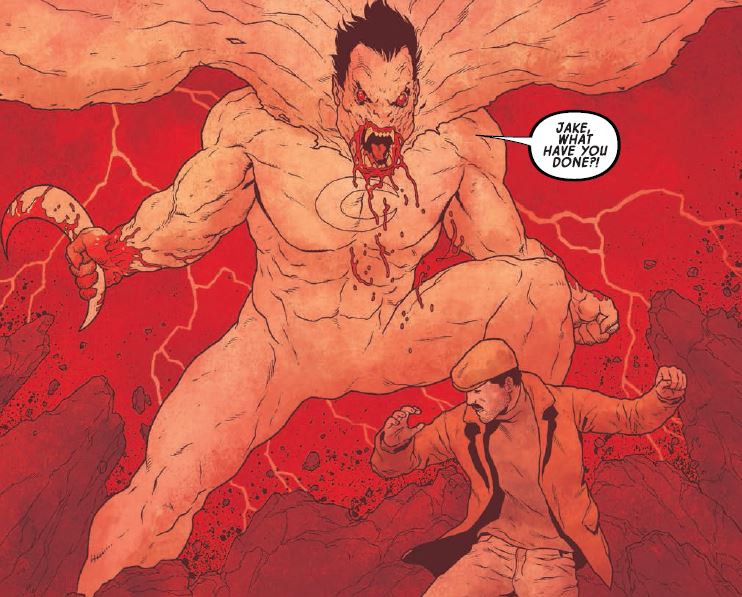An old joke goes like this: A newly admitted patient in a psychiatric hospital tells another patient who’s been there awhile, “I’m afraid I might be schizophrenic.” The other patient answers, “Well, that makes four of us.”
Many people still have this misconception that schizophrenia means “split personality.” This is understandable — the root “schiz” means “split,” from which we get English words like “schism.” But “schizophrenia” really means “split mind,” a term coined by Eugen Bleuler in the early 20th century to reflect his observations that personality, thinking, memory, and perception were “split off” from each other in these patients.
So, for example, a schizophrenic might be telling a sad story but laughing hysterically at the same time, or showing no emotion whatsoever. Or their thoughts might not follow logically and therefore sound jumbled and confused to the listener. Bleuler was actually expanding on the work of Emil Kraepelin, who first described the syndrome of schizophrenia as we recognize it today in the late 19th century, but called it “dementia praecox” (“premature dementia.”)

Well which is it, David?! From Legion #1
So, then, is there a separate disorder called “split personality?” Yes and no (see what I did there?). While the diagnosis does not exist under that name, many people are familiar with the term “multiple personality disorder.” And in fact that was the correct term for people with more than one distinct personality until 1992, when the American Psychiatric Association, publishers of the Diagnostic and Statistic Manual of Mental Disorders (DSM), changed the official name of the condition to “dissociative identity disorder.”
This was not an arbitrary decision. The term “multiple personality disorder,” or MPD, implies the existence of several distinct personalities, as seen in the 1957 film Three Faces of Eve, starring Joanne Woodward as a timid housewife leading a double life of which she is unaware. Yet a third personality, or “alter,” as they’re now often called, emerges during treatment.
Perhaps better known by today’s audiences is the 1976 two-part TV movie Sybil, which starred Sally Field as a patient afflicted with 11 distinct personalities, and – in a nod to her earlier role as Eve – Joanne Woodward as her psychiatrist. A contemporaneous report indicated that the real-life patient on whom Sybil was based had manifested as many as 34 alters.
Does this begin to stretch the limits of credulity? It should. A principal reason for the change in name from MPD to dissociative identity disorder (DID) is that, in most cases, the sufferer does not have multiple distinct personalities, but mere fragments of other personalities that have no “backstory” and simply appear when their “owner” is stressed. One thing that the dramatized versions get right is that the creation of alters, or dissociation, takes place as a defense mechanism against severe emotional trauma – the theory being that the unconscious mind says, “This is so awful it can’t be happening to me; in fact, it’s happening to someone else.” But there is almost always a pattern of systematic abuse during childhood, rather than a single traumatic event, as was suggested in Eve.
After Sybil came out, there was a flurry of interest in similar cases. Reports began to surface of cases with hundreds of alters, or of patients with alters not only of different genders, but with different physical attributes, e.g. left-handed alters in right-handed patients, or alters with diabetes in patients who were not diabetic. These reports were largely anecdotal and unsubstantiated, reflecting perhaps ambitious psychotherapists eager for recognition, especially given the relative rarity of true DID.

An alter with a mustache?
Another possibility is that some of these supposed alternate personalities were “discovered” under hypnosis, a highly suggestible state in which patients can be unwittingly induced to tell the hypnotherapist exactly what they sense he or she wants to hear. Asking a reticent patient under hypnosis, “Is there someone else in there who wants to come out? Someone else I could talk to?” is a sure-fire way to “reveal” a previously unknown alter.
Eve and Sybil both implied that the alternate personalities, including the main or “executive” personality, remain completely unaware of each other’s existence. This was the classical understanding when we thought that each alter represented a fully-formed, separate personality. But now that we know it’s more common to have incomplete personality fragments in DID, it does seem that alters are commonly aware of each other, to the point where the more benign ones try (and often fail) to keep the more destructive ones from coming out.

Although DID typically does not cause vivid hallucinations in the sufferer – and certainly not in those around him or her! Alters also don’t emerge simultaneously and fight each other, and they cannot all speak through their “host” at once.

Contrary to what’s seen in the comics, the best way to conceptualize DID may have come from a former supervisor of mine, who said, “Patients with dissociative identity disorder don’t really have multiple personalities – they have a bunch of traumatized fragments, all trying unsuccessfully to re-integrate into one complete personality.”
Join the AIPT Patreon
Want to take our relationship to the next level? Become a patron today to gain access to exclusive perks, such as:
- ❌ Remove all ads on the website
- 💬 Join our Discord community, where we chat about the latest news and releases from everything we cover on AIPT
- 📗 Access to our monthly book club
- 📦 Get a physical trade paperback shipped to you every month
- 💥 And more!














You must be logged in to post a comment.